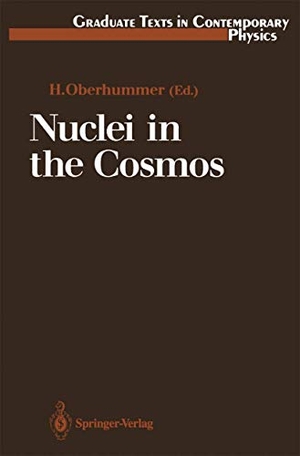Für statistische Zwecke und um bestmögliche Funktionalität zu bieten, speichert diese Website Cookies auf Ihrem Gerät. Das Speichern von Cookies kann in den Browser-Einstellungen deaktiviert werden. Wenn Sie die Website weiter nutzen, stimmen Sie der Verwendung von Cookies zu.
Cookie akzeptieren
Nuclei in the Cosmos
- Springer Berlin Heidelberg
- 2012
- Taschenbuch
- 252 Seiten
- ISBN 9783642488429
Nuclear astrophysics as it stands today is a fascinating science. Even though, compared to other scientific fields, it is a young discipline which has developed only in this century, it has answered many questions concerning the under standing of our cosmos. One of these great achievements was the concept of nucleosynthesis, the creation of the elements in the early universe in interstellar matter and in stars. Nuclear astrophysics has continued, to solve many riddles of the evolution of the myriads of stars in our cosmos. This review volume attempts to provide an overview of the current status of nuclear astrophysics. Special emphasis is given to the
Mehr
Weniger
zzgl. Versand
in Kürze